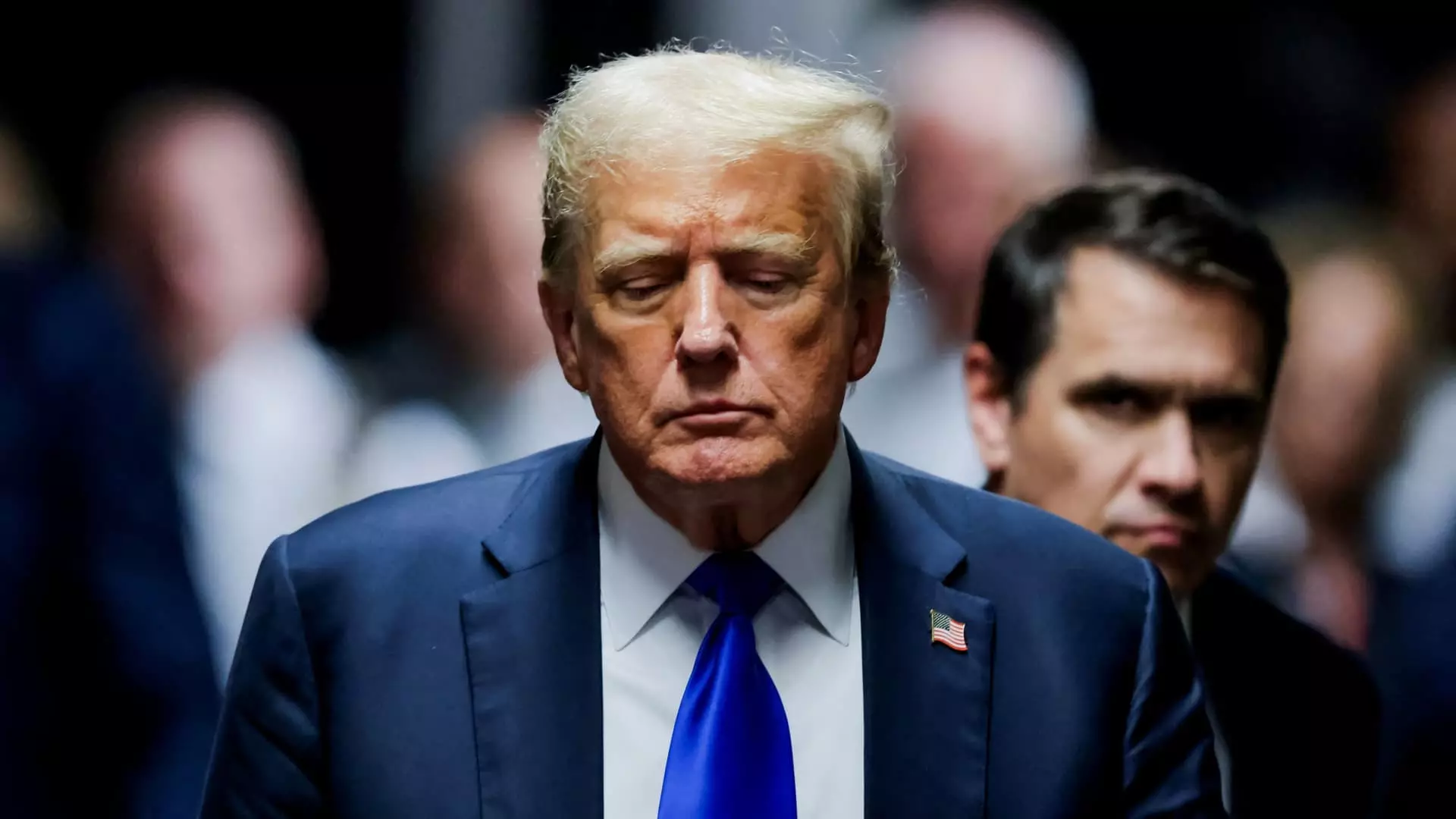The legal battles facing President-elect Donald Trump have taken center stage in American politics, culminating in a recent ruling by Manhattan Supreme Court Judge Juan Merchan. Trump’s attempts to dismiss his criminal conviction concerning hush money payments—a controversial and unprecedented issue involving a former president—were dealt a blow when the judge rejected arguments claiming presidential immunity. This case not only underscores the intersection of law and politics in the U.S. but also raises fundamental questions about the limits of accountability for those in high office.
On Monday, Judge Merchan reviewed a series of claims put forward by Trump’s legal team that sought to invalidate the prosecution’s case. Despite the defense’s arguments focusing on the nature of the evidence—including testimonies from former White House employees—the judge maintained that these factors did not warrant the dismissal of the charges against Trump. The rejection of Trump’s immunity claim suggests a firm stance by the judiciary that legal accountability may extend beyond the political shield typically surrounding a sitting president.
The ramifications of Judge Merchan’s ruling are profound, as it raises the specter of legal repercussions that could follow a former president into the subsequent layers of their public life. Although the judge has yet to make final rulings on other arguments presented by Trump’s attorneys, the current trajectory of the case indicates that Trump’s conviction on 34 felony counts for falsifying business records could remain intact.
The Manhattan District Attorney’s Office has indicated that sentencing could be postponed until Trump vacates the office, suggesting a judicial recognition of the unique situation surrounding a former president’s legal standing. Such a decision also raises intriguing discussions regarding the timing of justice and the complicating factors that come into play when a president or president-elect is involved in legal disputes.
The debate over presidential immunity has become a contentious topic within legal circles, especially following a U.S. Supreme Court decision asserting the idea that presidents may have certain protections in the course of their official duties. Trump’s lawyers referenced this precedent in their arguments, asserting that the hush money payments fell under actions taken while in office. However, Judge Merchan decisively countered this claim, stating that the nature of the falsified records was decidedly personal. By emphasizing that the acts in question did not pertain to official presidential conduct, the court has potentially set a significant precedent regarding the limits of immunity.
The judge’s ruling could signify a willingness on the part of the judiciary to engage in the difficult task of balancing respect for presidential authority against the overarching principle that no one is above the law. Trump’s legal representative, Todd Blanche, expressed concern over the implications of the ruling, arguing for a stay on sentencing until all appeals are processed. Such a request reflects the precarious position that Trump finds himself in, caught between the demands of his political ambitions and the stark realities of the legal system.
At the heart of this case lies a $130,000 payment made by Trump’s former lawyer Michael Cohen to adult film actress Stormy Daniels just before the 2016 presidential election. The payment was reportedly in exchange for Daniels’ silence regarding an alleged affair with Trump. While Trump has vehemently denied any wrongdoing or involvement in sexual misconduct, the implications of the payment raise critical issues regarding ethics in campaign finance and the lengths to which individuals may go to protect a political image.
As the country watches this complex legal situation unfold, the case against Trump highlights a broader dialogue about the ethical responsibilities of those who hold the highest offices in the land. It challenges the perception of political invulnerability that often surrounds former presidents and prompts a reevaluation of how legal systems handle allegations involving public figures.
Ultimately, Trump’s legal challenges exemplify the ongoing tensions at the intersection of law, politics, and public opinion in America. The judicial decisions being made now may reverberate through the fabric of U.S. law and governance, potentially altering the landscape for future political figures. The outcome will not only affect Trump’s legacy but may also redefine the mechanisms of accountability and the normative boundaries of presidential conduct in the decades to come. As this historical case progresses, it becomes increasingly critical to assess its implications for democracy and the rule of law in the United States.


Leave a Reply